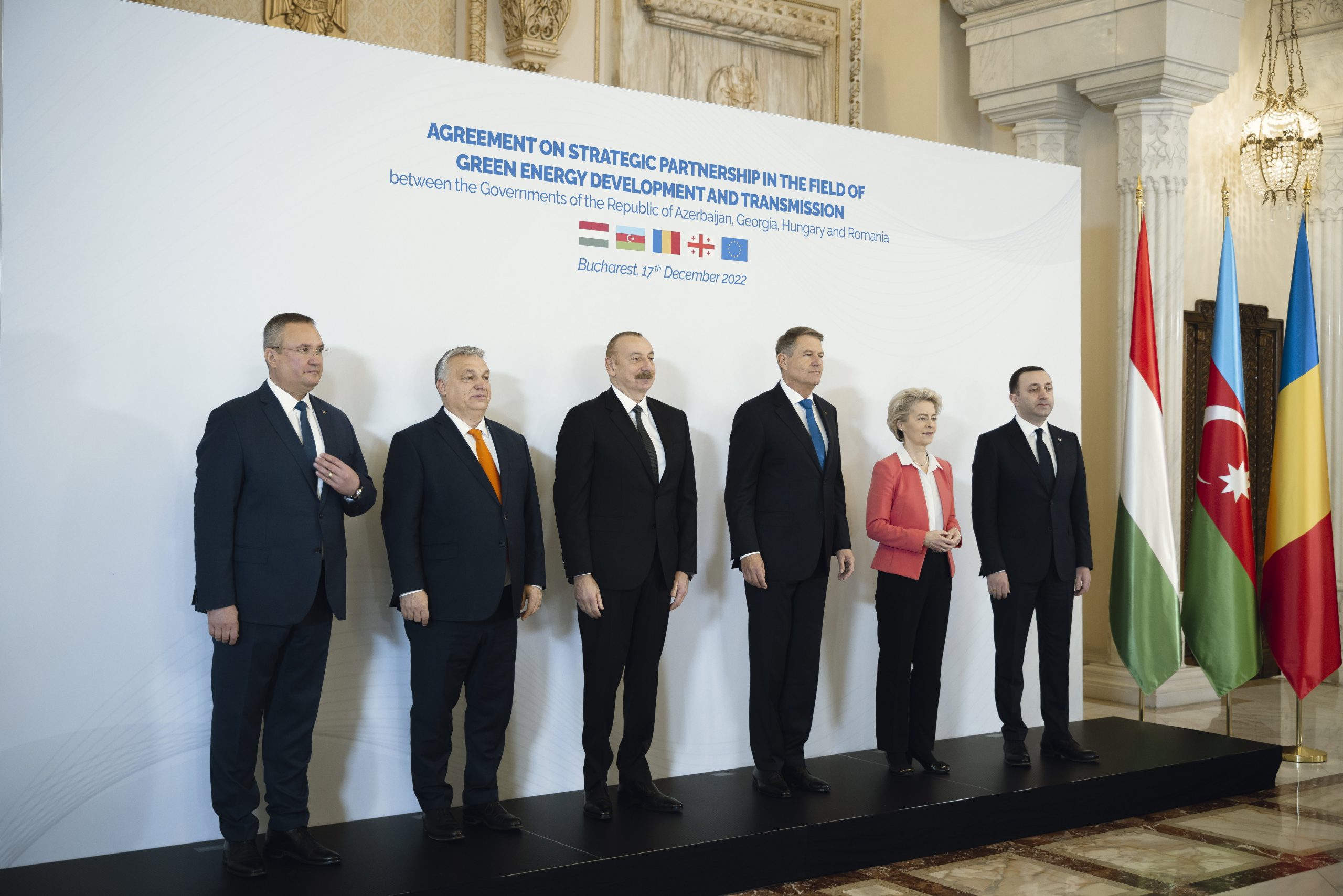
The Prime Minister stressed that Europe was in a strategic vacuum in which the leaders of states were required to make every effort to create economic and energy security for their countries. He added that the solution lay in finding new energy sources and bringing them to Europe.
Within a reasonable distance, there are available energy sources around the Caspian Sea, and the power cable now announced offers an innovative solution to exploiting those resources, the Prime Minister said.
Mr Orbán highlighted that the present European situation was “more chaotic than we have ever witnessed in our lifetime”. There is a war under way in our neighbourhood, and there is a severe energy crisis which is not only a price, but also a supply crisis. In the meantime, inflation is taking its toll on the entire European economy, European leaders have decided to sever the Russian economy from the European economy, and additionally, the United States has introduced a series of unprecedented protective measures which are also affecting Europe, he listed.

All this means that the period when we imported cheap raw materials and energy from Russia, in exchange for which we provided Western technology, is over; a period which resulted in economic growth and military security for both parties. There is no new strategy, however, hence the strategic vacuum, he pointed out.
He stressed that in this situation only innovation could offer a solution, and the power cable now announced was a genuinely innovative project.
The submarine power cable transmitting electricity generated in Azerbaijan primarily from wind and solar energy will be 1,195 kilometres long, while Romania and Georgia will also be connected together with an optic cable capable of high-speed Internet data transmission. Its capacity will reach 1,000 megawatts.
In addition to Mr Orbán, the agreement was also signed by Romanian Prime Minister Nicolae Ciuca, Azerbaijani President Ilhan Aliyev and Georgian Prime Minister Irakli Garibashvili in the presence of President of the European Commission Ursula von der Leyen.

In his speech, the Prime Minister spoke in words of praise about the fact that the EU had recently paid much attention to Azerbaijan, had developed cooperation, and that Azerbaijani head of state Ilham Aliyev was also open to cooperation.
“In the past more than a decade, my own experience has been that the European Union can always count on Azerbaijan as a reliable partner,” he stated.
Mr Orbán also mentioned the fact that he had arrived in Bucharest again after not having visited the city for eight years, and had experienced enormous progress and development which would, in his opinion, justify Romania’s membership of the Schengen Area. However, the other day “in the EU we made a flawed decision,” he recalled, and this must be rectified; Romania must be admitted to the area guaranteeing free movement. The Prime Minister reassured Romanian President Klaus Iohannis, who was in charge of the proceedings of the Saturday event, that in this Bucharest can count on Hungary.